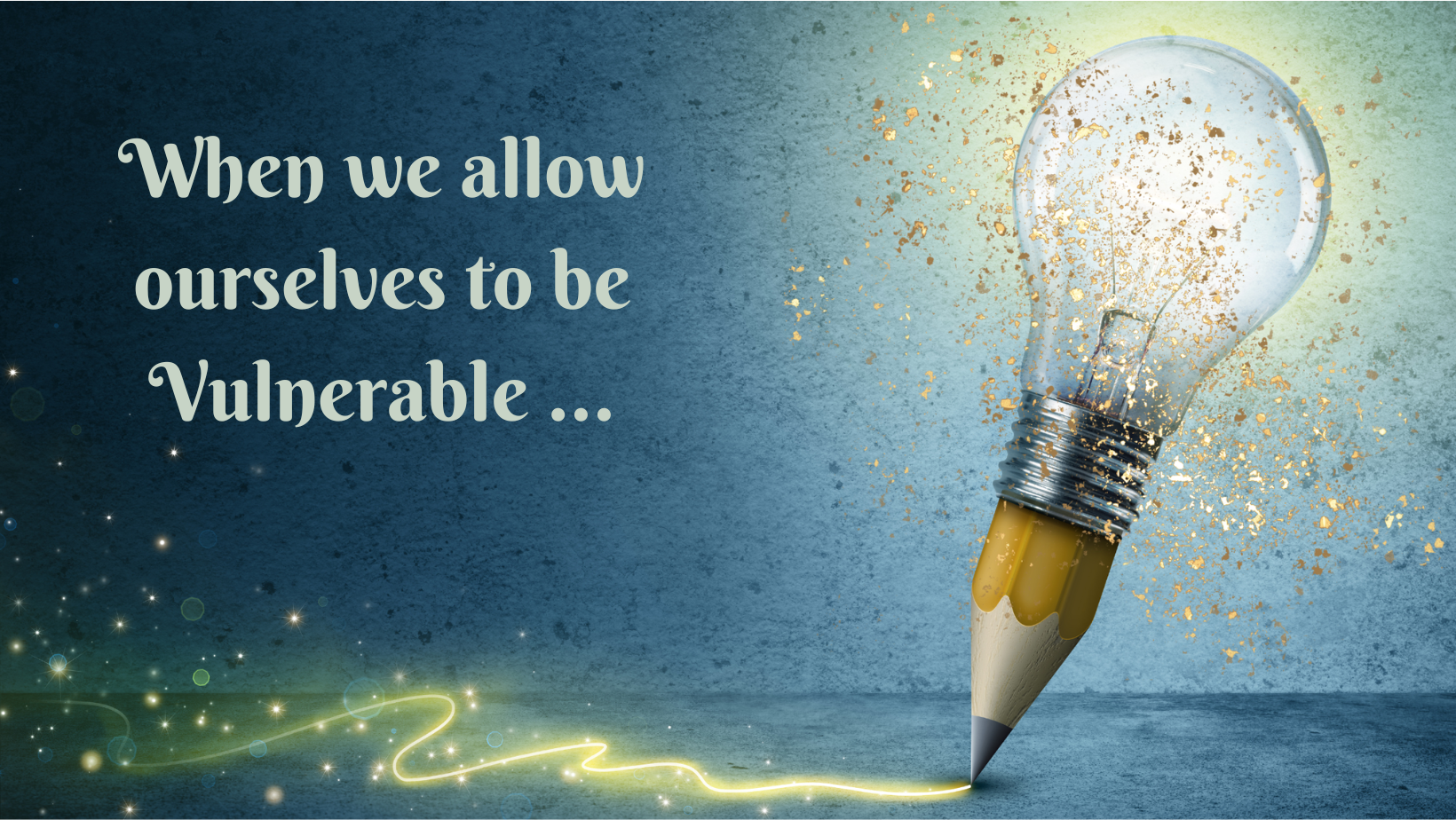I firmly believe that vulnerability supports creativity. In my writers’ workshops, the most common praise I hear for a piece of really good writing is, “I love the vulnerability.” Authors share things that are meaningful in ways that expose their inner selves. That can be scary. What if people think the writing is crap, or they are offended, or they take something intensely personal that I share and then use it against me? Yet without that vulnerability, writing tends to be flat and forgettable.
Brené Brown defines vulnerability as having the courage to show up when you don’t control the outcome. Certainly, we don’t control the way people respond to our writing, so putting anything truly personal out means being vulnerable. There are reasons why this is scary, but there are also ways to get past that fear.
Overwhelming Voices from the Past
Why is vulnerability so difficult? Many of us carry around voices from the past that made us feel slapped down. We have built-in mechanisms to avoid doing something that hurt in the past.
I had lunch with a woman who had won my book, Sit Write Share in a drawing. I asked her to tell me about her writing aspirations. Yes, she wants to write. No, she doesn’t have a particular project in mind, just the urge to get her own words on paper. No, the words don’t come easily. A mentor who was a writer by profession gave her feedback that felt condescending many years ago, and it still stings. She hears a repeat of the words, “If you work hard enough, you might get to be a writer someday,” and “You don’t seem to be particularly good at fiction. Maybe you should stick to non-fiction.” While she doesn’t believe they are true, she’s not sure, so the comments continue to rankle many years later.
Voices Also Present
We talked about finding a project. Did she have wisdom gathered from a long career that she wants to share? Does she have observations about ways the world has changed since she was a child? Does she want to capture her own experiences in a memoir? None of these entirely rang her bell. We finally talked about writing about her grandchildren’s lives, what she remembers about them as babies, toddlers, and children. This way her writing project could be something that at least a few particular people person in the world would treasure.
I was struck by the fact that writing for its own sake was her desire. She didn’t have a professional goal to pursue, and she didn’t want fame or fortune. What she wanted was the skill and courage to use her own voice.
Words Stick with Us
I find it so unfortunate that people meet others who disparage their writing while they are learning, and we never stop learning. I think if we added up all the disparaging voices that people have internalized, we would hear a mighty roar that drowns out so much creativity.
Let me give another example. An admired teacher told a gifted singer that she should sing story songs and not try for top soprano parts. Many years later, a director begged her to take a soprano coloratura role, saying that she was just right for the part. Unfortunately, the internalized voice of the teacher in high school kept her from believing she could do it.
An Instance of Vulnerability Supporting Creativity
It doesn’t have to be that way. Here’s a contrast. In a recent writers’ workshop, a writer shared a first draft of a personal story related to diversity, equity, and inclusion. The group was diverse, and the readers were very direct with the author about places where his piece sounded as if he, the white middle-class male, was swooping in and fixing things. They found that patronizing.
Since that was not his intention, he listened and revised, creating a much more compelling piece. The readers acknowledged his vulnerability sharing the piece. They also displayed their own vulnerability as they explained how it landed. The writer acknowledged what they experienced, approaching the exchange with humility and curiosity. He brought back later revisions to the group, and we were all pleased with the outcome.
Ways to Enhance the Vulnerability that Supports Creativity
What if you approached writing, both as a learner and a teacher, with an open-minded awareness of the courage it takes to create? What might that mean?
Here are my thoughts about how that awareness might show up. As you read these suggestions think first about your own creativity. Then come back and read them again thinking about the people who might be soaking up your words. How could these suggestions change the way you talk to yourself and talk to others?
- Treat all first drafts as nothing more than the starting point to get writing done. Perhaps the first draft suggests questions that need to be answered. Perhaps the bones of the story need more muscle and skin to come alive. Perhaps it’s time to find a story that shows an idea in action rather than spelling it out directly.
Anne Lamott reminds us that all writers produce shitty first drafts. That means you, and it means your student, friend, or child. My own Write Experiment 8 explains why it works better to draft without editing. There is time to edit later. - Never label the writer, only the work. Why would anyone say, “You aren’t a fiction writer,” after two or three attempts? Who knows how many early drafts Ernest Hemingway, Jane Austen, or Amor Towles tossed into the fire.
Never ever tell yourself or anyone else, “You can’t write.” - Seek for what’s good in the writing before looking for ways to improve it. What story seeds are already there? What novel ideas show up, even if they take a little digging to emerge? How does a unique point of view show through?
Using the process described in Share Experiment 7, I have reviewed several thousand pieces of writing this way. I have never failed to find something strong. - Acknowledge the courage it takes to be vulnerable.Appreciate it in others. Appreciate it in yourself.
- Share fears, missteps, and U-turns. “I am really unsure of this piece of writing. Will anyone find it interesting?” “I started out this piece out writing about taking small steps and ended up writing about how we can help each other get better at writing.”
If you are the writer, perhaps this occurs in conversations with your friends. If you are a mentor, perhaps your example will help a learner face fears more courageously.
Vulnerability in Action
A friend of mine has participated in my writers’ workshops since they started. He told me recently, “I could not write the way I write now when I started working with you. You have helped me be vulnerable enough to find my voice and tell important stories.”
He is also working with high school students who are writing college admission essays. The first drafts he receives are mostly terrible, but he never forgets that all first drafts are terrible and that these young people need help learning how to be vulnerable enough to tell their own stories and write about who they want to become. He thanked me for giving him the courage to create, and he is passing this on to numerous young people.
Who are the people in your life that could benefit from this kind of encouragement, yourself included?
In Summary
Acknowledge fear as part of the experience, and keep going anyway. Model this for other learners in your life. Challenge the ill-judged words of others before they shut down your options.
Bravo, vulnerability!

